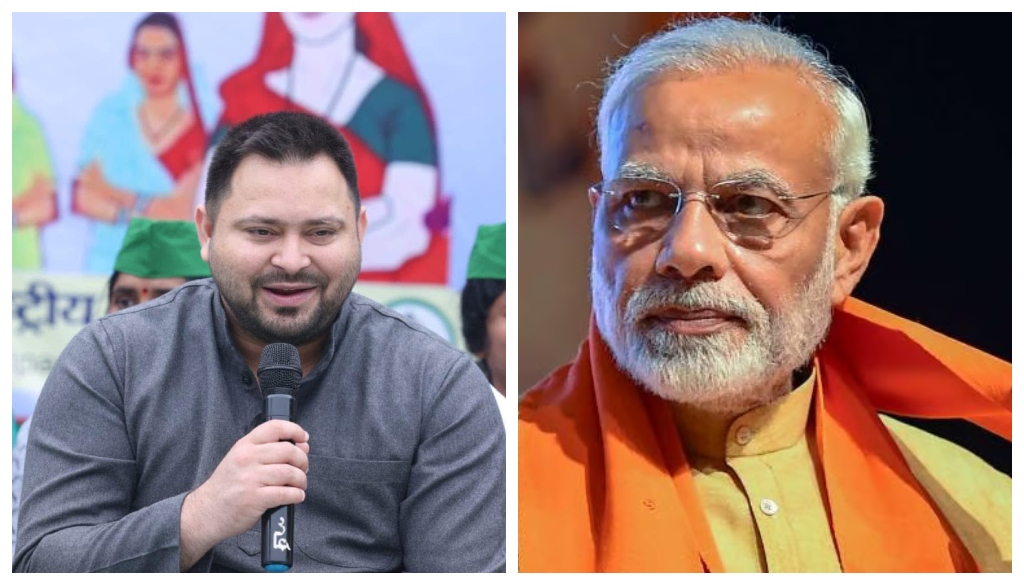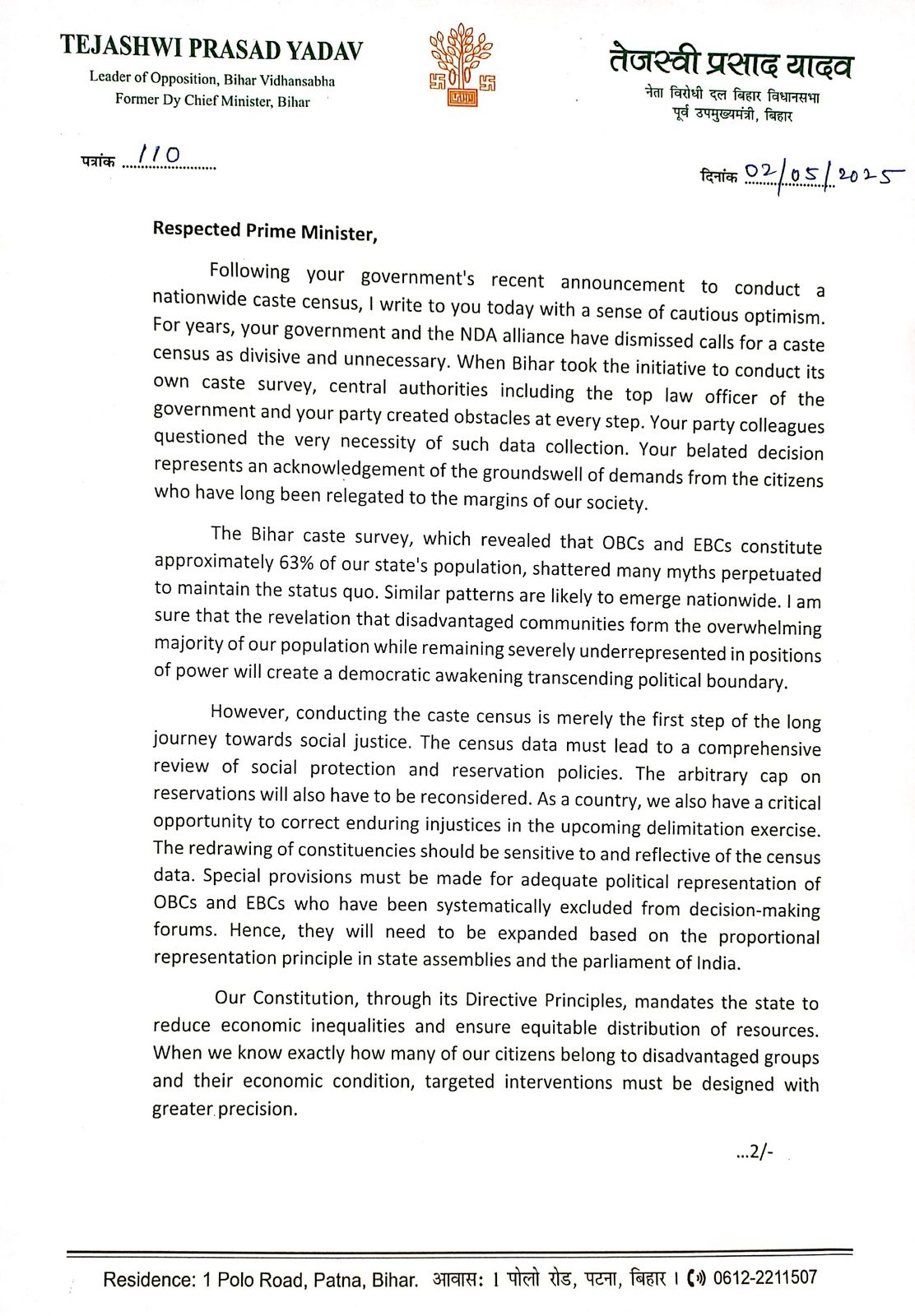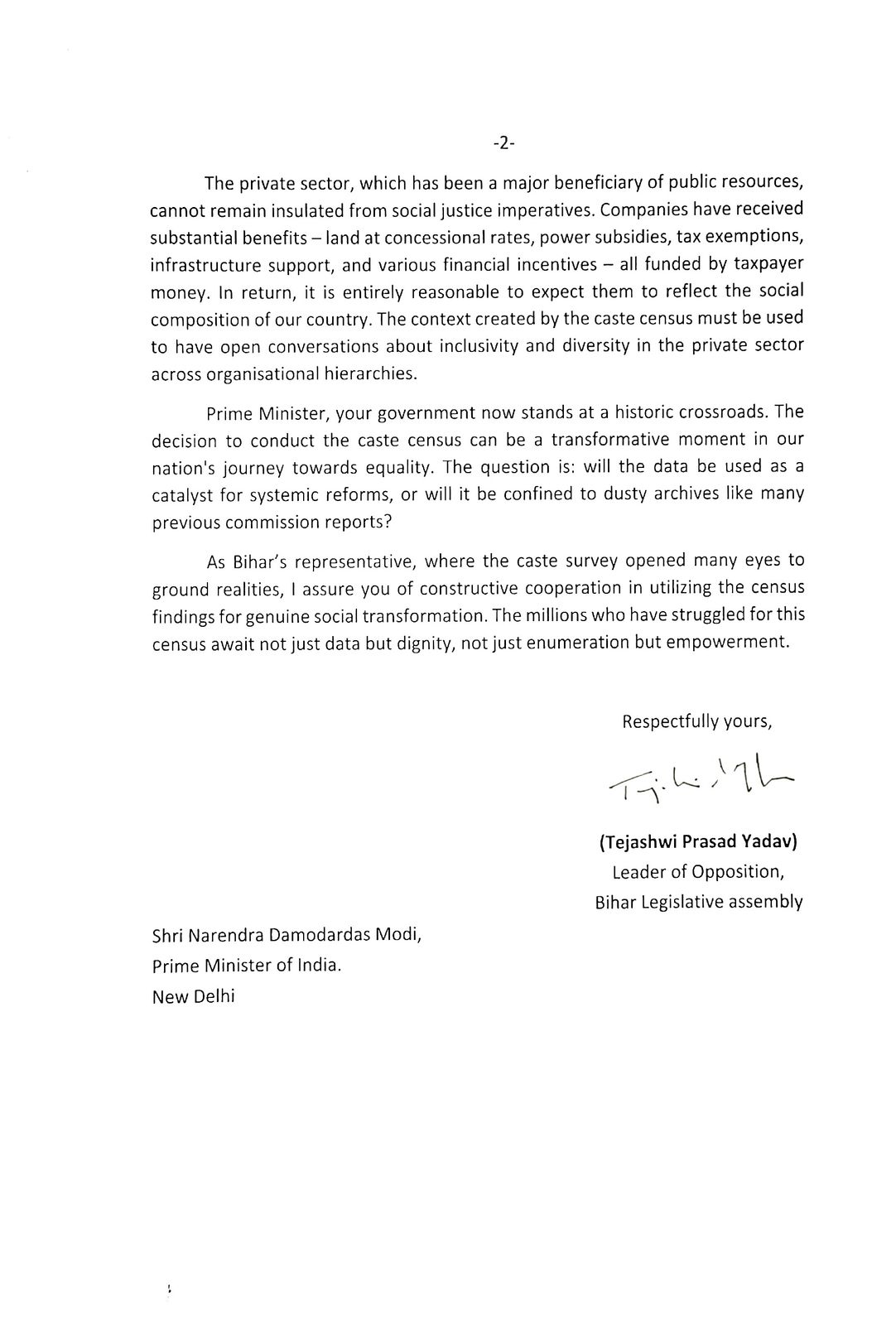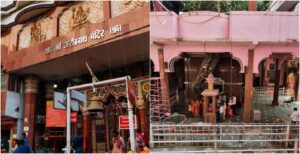
Patna: Leader of Opposition in Bihar Tejashwi Prasad Yadav has written to Prime Minister Narendra Modi, welcoming the Centre’s decision to conduct a caste-based census as part of the upcoming decadal enumeration. In a pointed and politically charged letter, Tejashwi called the move a “belated course correction” and demanded that it be followed up with systemic reforms—including proportional reservations in Parliament, judiciary, and the private sector.
Tejashwi’s letter comes at a time when political temperatures in Bihar are rising ahead of the state assembly elections. By positioning himself as the flag-bearer of the social justice plank, the Rashtriya Janata Dal (RJD) leader is seeking to reclaim the political legacy of Mandal-era politics, while expanding its scope in the contemporary context.
“This revelation busted many myths spread to maintain the status quo,” Tejashwi wrote. “Similar patterns are likely to emerge across the country.”
Widening the Social Justice Agenda

In his letter, Tejashwi outlined several demands:
- Proportional Political Representation: He urged that caste census data be integrated into the upcoming delimitation process, so that constituencies reflect the real demographic strength of disadvantaged communities.
- Quota in Private Sector and Judiciary: Arguing that private industries benefit from taxpayer-funded incentives, Tejashwi said it was “entirely reasonable” to expect that these sectors mirror the social diversity of the country. He also called for adequate representation of OBCs and EBCs in the judiciary.
- Data-Driven Welfare: The RJD leader stressed the need to design more effective targeted interventions using the new caste data, aligning with constitutional directives to reduce inequality.
He also took aim at the government’s earlier resistance to caste enumeration, stating that the Centre had “created hurdles at every step” and that BJP leaders had made “lewd and indecent comments” against the Bihar-led caste survey initiative.
Political Stakes Ahead of Elections

Tejashwi’s move is being seen as a strategic effort to keep the focus on caste-based inequities and position the opposition as the true custodian of social justice. It also forces the BJP, which has attempted to balance a caste-neutral developmental pitch with its core upper-caste vote base, to clarify its stand on sensitive issues like reservation in private jobs and courts.
“The decision to conduct a caste census can be a transformative moment in our country’s journey towards equality,” he wrote. “The millions who fought for this census are waiting for not just data but respect, not just enumeration but empowerment.”
The RJD is likely to make the caste census and the demand for proportional representation a centrepiece of its campaign in Bihar. Political observers believe this could rekindle the Mandal vs Kamandal narrative that shaped Indian politics in the 1990s—this time, with an eye on new institutions and economic sectors.
For the NDA, which had earlier labelled the Bihar caste survey as unconstitutional, the decision to now include caste data in the national census could be seen as a strategic concession.
As Bihar heads into an election season, caste and its political representation are once again set to dominate the discourse—not just in legislative debates, but in campaign rallies, manifestos, and perhaps even the framing of India’s next social contract.





